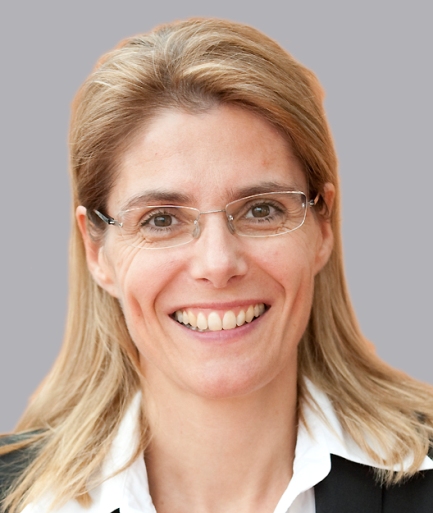 |
Univ.-Prof. Dr. med. Frauke Zipp, Conference Chair, 12th International Congress of Neuroimmunology (ISNI)
In five days your biannual 12th International Congress of Neuroimmunology (ISNI) will start. What is Neuroimmunology?
Neuroimmunology is a relatively new and rapidly growing field that bridges neuroscience and immunology – it is concerned with the nervous system, the immune system, and specifically with their interactions. Both of these systems are extremely complex, so unravelling their interactions is not easy. However, the potential rewards are great, as research in this area is leading to a deeper understanding of diseases such as multiple sclerosis, and providing leads for the development of new therapies.
What is the aim of ISNI and how important is your 12th ISNI congress in order to achieve your goals?
ISNI was founded in 1982 to recognize the emerging importance of neuroimmunology. It aims to support established scientists, but also undergraduate and postgraduate students in this rapidly growing field through courses and meetings, providing a forum for discussion.
The ISNI Congresses are central to achieving these aims. This year, approximately 70 experts in neuroimmunology have been invited from around the world to tell us about the most exciting developments in the field. 50 young researchers will also present their research and there are lots of poster sessions. The biannual ISNI Congress is the most important date in the neuroimmunologists’ calendar, as it gives them the opportunity to network, showcase their work, and foster new collaborations.
On your conference website you publish the "Golden rules" for attending sessions. One is: "Please do not bring food into the meeting". Why do you do this?
This is just one of the house rules set by the congress organizers. Like switching off your mobile phone or arriving on time, it is meant reduce any unnecessary disturbances. Don’t worry though, you won’t be thrown out of the lecture theater for eating a bar of chocolate!
Your biannual ISNI congress went 2012 to Boston and will go 2016 to Jerusalem. This year you have chosen Mainz. How come?
Mainz is part of the Rhine-Main metropolitan area, along with Frankfurt, Darmstadt and Wiesbaden, and is the economic center of Germany and home to more than 3 million people. It is also an international hub for Europe with Frankfurt International Airport located at its center. There is a bustling scientific community including the Universities of Mainz and Frankfurt, several Max-Planck-Institutes and federal research institutions. Collectively, there are more than 100 000 third-level students in the region.
The Local Organizing Committee, neuroimmunologists from Germany, Austria and Switzerland, has compiled an exciting scientific program for the conference. Mainz was chosen as host for several reasons. Together with my conference Co-Chair Ari Waisman, we have built up what we believe is a hot spot for neuroimmunology research and for the treatment of patients suffering from inflammatory neurological diseases such as multiple sclerosis in the University Medical Center Mainz.
Finally, Mainz itself and the conference venue are located picturesquely on the banks of the River Rhine in one of Germany’s wine-growing regions, with a rich history going back to Roman times and including the invention of the modern printing press by Johannes Gutenberg.
For those delegates who cannot join you in Mainz. Can they participate remotely?
We have a great scientific program lined up, but this event is more than that – it is also an opportunity for members of the neuroimmunology community, both younger and older, to meet, discuss their work, establish collaborations, put a face to a name or to have a beer with an old friend. However, for those that can’t make it, all abstracts from the presentations and posters will be available in a special issue of the Journal of Neuroimmunology.
What are the main three challenges for ISNI these days?
Scientifically, translation from the bench to the clinic remains a challenge, so that our research ultimately benefits patients. ISNI provides a forum to help encourage these collaborations between scientists and clinicians and to highlight research priorities.
Given current economic constraints, maintaining high levels of independent research funded by public sources is not easy. ISNI is essential for the development of novel research ideas and national and international collaborative initiatives, which are needed for successful funding applications.
Getting the best young minds is crucial for the advancement of all scientific fields. ISNI provides encouragement and motivation through its congresses and schools giving young clinician scientists and basic researchers the opportunity to present their work at early stages of their careers as talks and posters and to meet more experienced scientists.
Found in 1982 the International Society of Neuroimmunology (ISNI) has contributed greatly to the growing recognition of the different roles of the immune system in causing or modifying the severity of neurological disorders, and to the potential for new approaches to treatment. On invitation ISNI and the Rhine Main Neuroscience Network (rmn2) the 12th International Congress of Neuroimmunology will take place from 9 to 13 November 2014 at the Rheingoldhalle Mainz. www.isniweb.org, www.isnicongress.org